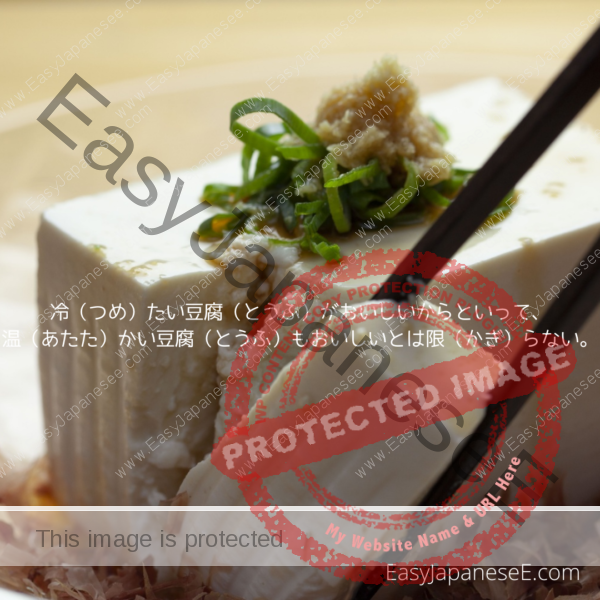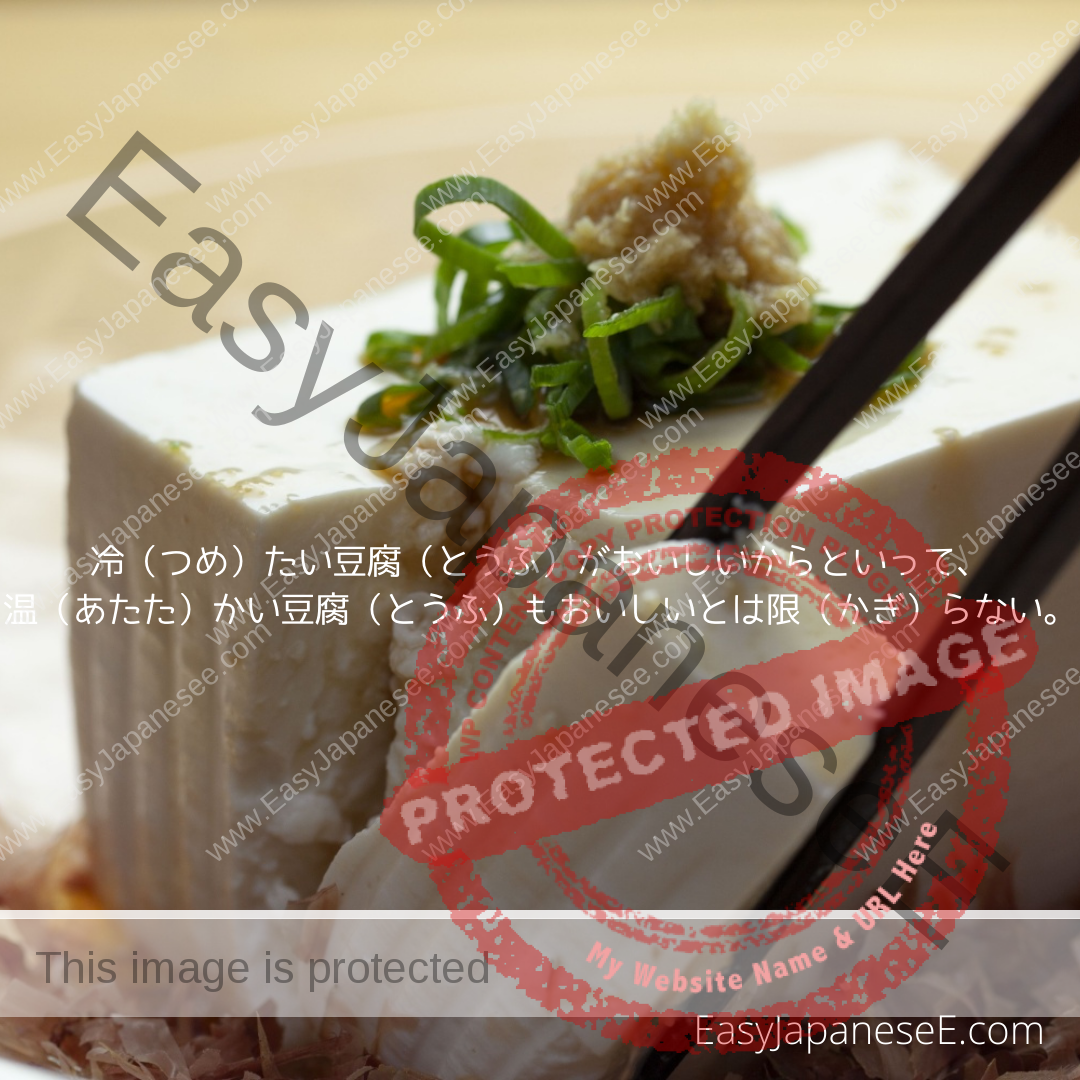
Today’s Grammar Point: ~とはかぎらない
かぎらない in ~とはかぎらない is the negative plain form of 限る = to limit, to confine. So ~とはかぎらない literally means “not limited to ~” and it’s used in “partial negation” which is often translated as “not always ~”, “not all are ~” or “not necessarily ~.”
Connections
- [plain form verb (past/non-past, affirmative/negative)] とは かぎらない
- [いadj stem] い/かった とはかぎらない
- [なadj](だ)/だった とはかぎらない
- [noun] (だ)/だった とはかぎらない
Examples
店に来る人がみんな何か買うとは限らない。
Not everyone who comes to the store buys something.このままでは破産しないとも限らない。
(≒このままでは破産するかもしれない。)
At this rate, we may not be able to avoid bankruptcy.机に向かっていても、勉強しているとは限らない。
Even if he is at his desk, that doesn’t mean he is studying.そこにいたからと言って、犯人を見たとは限らない。
Him having being there does not mean that he saw the criminal.質問に答えなかったからと言って、答えを知らなかったとは限らない。
Even if he didn’t answer the question, that doesn’t mean that he didn’t know the answer.冷たい豆腐がおいしいからと言って、温かい豆腐もおいしいとは限らない。
Even if cold tofu is delicious, that doesn’t mean warm tofu is also delicious.満点がとれたとしても、試験が易しかったとは限らない。
Even if you get a perfect score, it does not mean that the test was easy.お金持ちが幸せとは限らない。
The rich are not necessarily happy.それが本当でないとも限らない。
≒それは本当かもしれない。
It may possibly be true.光るものすべてが金とは限らない。
All that glitters is not gold.背格好が似ていたからと言って、それがジョンさんだったとは限らない。
Even if the person looked like John, that doesn’t mean that was John.
If you liked this article, please share it with your friends using the social media buttons below. Also, your clicks on ads on this page help covering the cost of running this website. Your support will be much appreciated.

